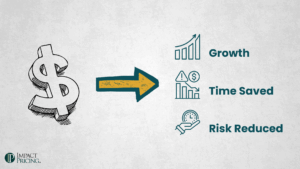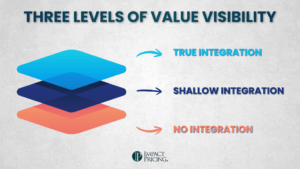You can listen to the full audio version of this blog we call — Blogcast.
This is undoubtedly the most common question I get when talking with groups about pricing. And you’ll hate my answer: It depends.
But let’s dive deeper. Depends on what? It depends on what part of pricing you’re thinking about. Pricing is a multi-faceted, multi-departmental, complex topic. It’s no wonder we’re confused about who should own it.
If you think of pricing as setting prices, which is often the first thing that comes to mind, my strong recommendation is product management or product marketing. These are the people inside your company (besides sales) who should know the value of your products to your customers. SaaS companies tend to give it to product marketing. Hardware and transactional companies tend to use product management.
Besides price setting, there are many other pricing roles. Larger companies have pricing departments that act as internal consultants. These can be located anywhere, but often report to finance.
Pricing includes working with sales to sell value. After all, if sales can’t sell the value, they end up discounting. This could be sales enablement, or your marketing department.
Pricing includes sales escalation policies. How much discount can a salesperson give? Who has to approve bigger ones? Usually finance or someone with P&L responsibility makes these decisions.
Pricing includes crafting pricing models, which often go hand-in-hand with molding an optimal product portfolio. How can you keep it simple enough for buyers to understand and complex enough to capture different customers willingness to pay? This obviously belongs with whoever directs the development priorities, usually product management or product marketing.
Pricing includes monitoring ASP (Average Selling Price) trends and what’s driving them? How can you get them to move upward? Can you quickly detect, diagnose, and fix downward trends? This fits great in finance, but is often found in sales operations.
Pricing includes designing the pricing page on your website if you have one. Obviously, marketing owns the web page, but they usually don’t understand creating pricing pages. This could be a role for a pricing person.
Hopefully you can see why the answer to “who owns pricing?” Is it depends. The best answer is to define the specific tasks and desired outcomes and assign an owner to each one. Regardless, they should all be working together. Our goal is to win more business at higher prices.
Who do you think should own pricing? What roles did I overlook?
Share your comments on the LinkedIn post.
Now, go make an impact!
 Tags: pricing, pricing foundations, pricing skills, pricing value, value
Tags: pricing, pricing foundations, pricing skills, pricing value, value













